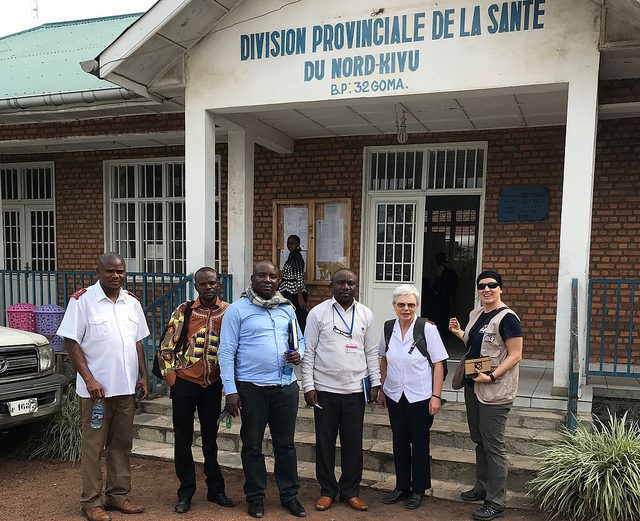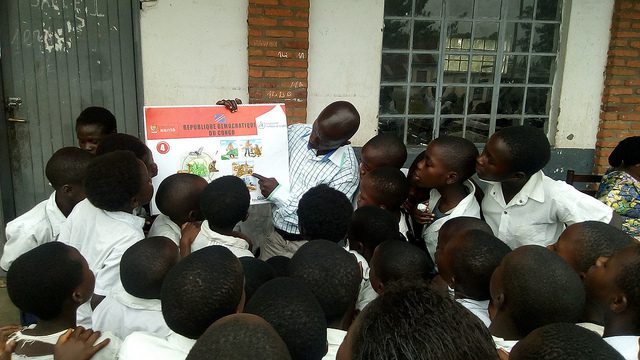A Salvation Army health project in the Democratic Republic of the Congo (DRC) aims to prevent the spread of the Ebola virus in Goma, in the far east of the country. The current outbreak, which started in August 2018, is the largest-ever Ebola outbreak in DRC with more than 900 cases and almost 600 deaths attributed to the virus in North Kivu and Ituri provinces alone. A high risk exists of the outbreak spreading to Goma, a short distance away from areas of confirmed cases. The Salvation Army project intends to minimize the spread of the virus by promoting rigorous handwashing, building awareness and knowledge of the condition, and eliminating the stigma associated with the virus.
 The Ebola virus causes a severe and often fatal fever accompanied by internal and external bleeding. It spreads from person to person through body fluids, so adhering to good hygiene practices is one of the most important ways to avoid infection.
The Ebola virus causes a severe and often fatal fever accompanied by internal and external bleeding. It spreads from person to person through body fluids, so adhering to good hygiene practices is one of the most important ways to avoid infection.
“The Salvation Army in Goma is small but their contribution and work is significant,” said Damaris Frick, The Salvation Army’s Deputy Coordinator of International Emergency Services, speaking from Goma. “To date there have been no confirmed cases of Ebola in Goma. Our hope is that together with the Ministry of Health, the World Health Organization and many other stakeholders our efforts will prevent this deadly virus spreading further.”
To this end, The Salvation Army is working with 10 health centers, 320 schools and 120 faith-based organizations, including mosques and churches of various denominations in the North Kivu region. The Salvation Army project team has completed two or five-day “Train the Trainer” courses for all the health center leaders, school leaders and religious leaders. The newly-trained leaders are then tasked with training a further 10 leaders each.

As well as the extensive Ebola prevention training program, The Salvation Army has provided all the identified churches and schools with hygienic hand-washing facilities, including a large capacity water tank, with a faucet, washbasin and an initial supply of 10 bottles of liquid soap.

Cooperating with the country’s Ministry of Public Health department, the roll-out will also see The Salvation Army providing 10 clinics with similar equipment—with the liquid soap replaced by a professional chlorine-based antibacterial agent. The clinics will also be provided with protective clothing, including boots, safety goggles, face masks, gloves and full-body Ebola suits in quantities sufficient for every staff member. Each clinic will also be equipped with a triage center at its entrance where patients, staff and visitors will be assessed and suspected cases contained to prevent potential spread.
Technology is being used as well, with the online messaging platform WhatsApp being utilized to provide a continuing stream of verified and updated information to the leaders who have undergone the hygiene training. The WhatsApp facility will also enable community leaders to ask questions and receive accurate advice on the best approaches to hygiene and disease prevention.
Project costs are approximately US$180,000. Donors may support The Salvation Army’s Africa Disaster Fund securely online.
Originally posted on The Salvation Army International.
IHQ Communications
From a report by International Emergency Services
International Headquarters












